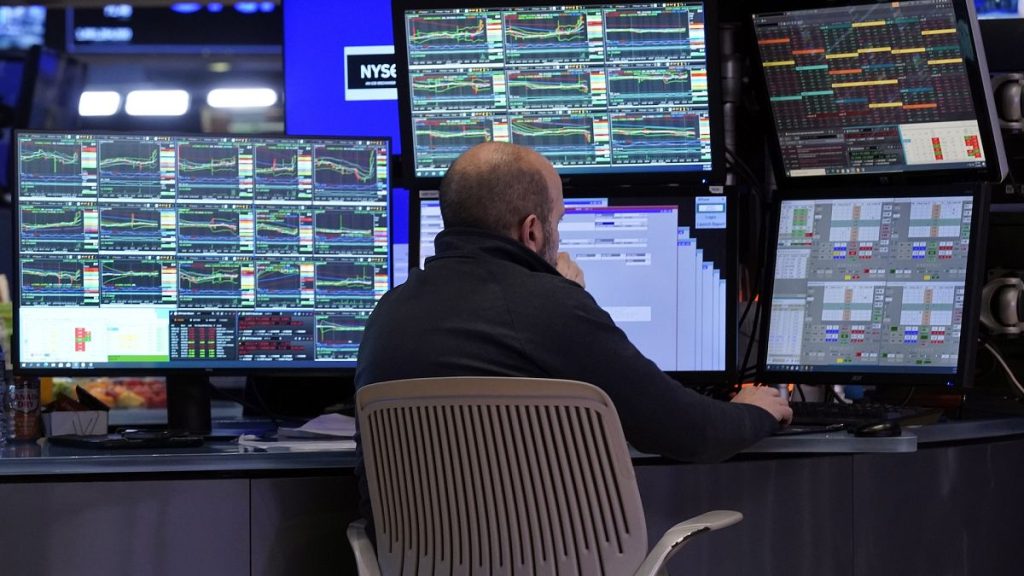Paragraph 1: Global Markets Surge on Positive Economic News
Global stock markets experienced a week of robust growth, driven by encouraging economic indicators and strong corporate earnings. Cooling inflation, particularly in the US and UK, fueled optimism among investors. This positive sentiment was further bolstered by robust quarterly earnings reports from companies on both sides of the Atlantic. The combination of these factors created a favorable environment for equity markets, leading to gains across major indices. The retreat of the US dollar from its two-year high also contributed to the positive momentum by boosting other currencies and providing support to metal prices. Global government bond yields decreased from recent peaks, influenced by the lower-than-expected inflation figures.
Paragraph 2: European Markets Outshine US Counterparts
European stock markets displayed particularly strong performance, outpacing their US counterparts. This outperformance is likely attributed to the anticipation of a more accommodating monetary policy from the European Central Bank (ECB) compared to the Federal Reserve. The pan-European Stoxx 600 Index, the German DAX, the French CAC 40, and the UK’s FTSE 100 all registered substantial weekly gains. Germany’s DAX repeatedly achieved new highs, propelled by broad-based gains across various sectors. The French market also exhibited strong performance, buoyed by the robust performance of luxury goods stocks. The Euro Stoxx 600 is nearing its all-time high, demonstrating the overall strength of the European market.
Paragraph 3: Sectoral Performance in Europe: Luxury Goods and Technology Lead the Way
A closer look at sectoral performance in Europe reveals that consumer cyclicals, technology, and financials were among the top performers, each experiencing gains exceeding 2%. Luxury stocks surged, driven by positive quarterly earnings from Richemont, which saw its shares soar to a record high. This positive momentum spilled over to other luxury brands like LVMH, Hermès, and Kering, contributing to a significant weekly gain in the Euro Stoxx 600 Luxury 10 Index. Technology shares also rallied, fueled by optimism surrounding central bank policies and expectations of lower interest rates. The banking sector demonstrated strength, supported by the robust earnings reported by major US banks the previous week.
Paragraph 4: US Markets Respond to Cooling Inflation
US stock markets also recorded strong weekly gains, primarily fueled by cooler-than-expected core inflation data for December. The Dow Jones Industrial Average, the S&P 500, and the Nasdaq Composite all advanced, with the small-cap Russell 2000 experiencing the most significant gains. The decline in core inflation raised hopes for further interest rate cuts by the Federal Reserve, although futures contracts suggest no change in the upcoming meeting. Within the S&P 500, most sectors experienced gains, with materials, industrials, and financials leading the way. The consumer staples sector was the sole exception, experiencing a slight decline due to weakened demand for haven assets as investor confidence improved.
Paragraph 5: China’s Economy Exceeds Expectations
China’s economy showcased resilience in the fourth quarter, with GDP growth exceeding expectations. The positive economic data, including strong industrial production and retail sales figures, suggest that the government’s stimulus measures are beginning to take effect. However, the National Bureau of Statistics also cautioned about ongoing challenges, such as rising external pressures and insufficient domestic demand. Despite these challenges, Chinese stock markets mirrored the global trend and registered notable gains, reflecting increased investor confidence in the country’s economic prospects.
Paragraph 6: Market Outlook and Key Drivers
The overall positive sentiment in global markets is underpinned by several key factors. The easing of inflationary pressures, particularly in major economies like the US and UK, provides central banks with greater flexibility in their monetary policies. Strong corporate earnings, particularly in Europe and the US, demonstrate the resilience of businesses in the face of economic uncertainty. The anticipated shift towards more accommodative monetary policies by central banks, coupled with the potential for further stimulus measures, is expected to provide continued support to equity markets. However, ongoing global challenges, such as geopolitical tensions and supply chain disruptions, warrant continued monitoring and could impact market performance in the coming weeks. Investors are also closely watching corporate earnings reports and economic data releases for further insights into the health of the global economy.














